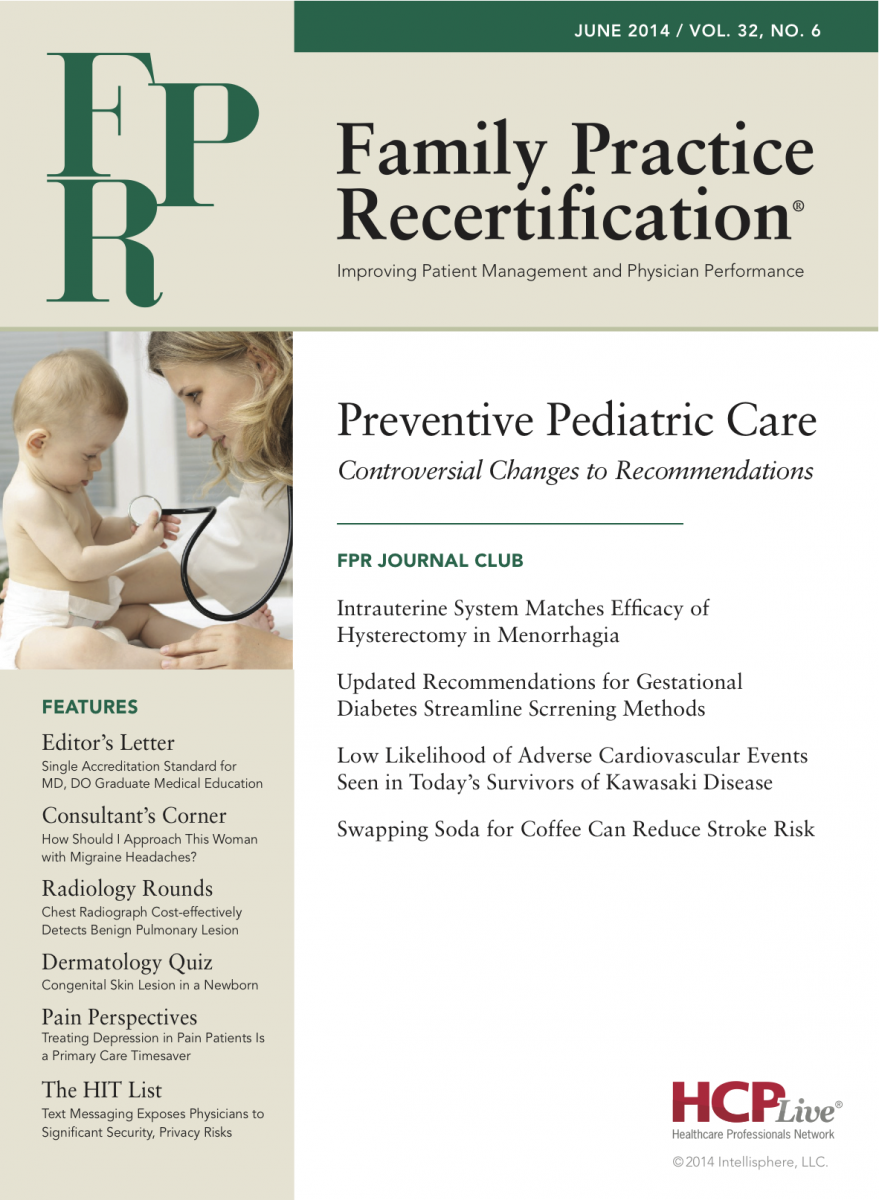Publication
Article
Family Practice Recertification
Meaningful Use of EHR Does Not Certify Improved Care Quality
Author(s):
Designated "meaningful users" of electronic health record systems do not deliver improved care for common chronic diseases.

A study published in the June 2014 issue of JAMA Internal Medicine found designated “meaningful users” of electronic health record (EHR) systems do not deliver improved care for common chronic diseases, casting doubt on whether the tens of billions of dollars invested to encourage EHR adoption among healthcare providers is really enhancing patient outcomes.
Over a 3-month period in 2012, Lipika Samal, MD, MPH, of the Division of General Medicine and Primary Care at Brigham and Women’s Hospital in Boston, and her colleagues compared the quality scores of 540 physicians who fulfilled the criteria for the Meaningful Use program to those of 318 physicians who did not. Specifically, the researchers assessed the physicians’ performance on 7 clinical quality measures for asthma, coronary artery disease (CAD), depression, diabetes, and hypertension.
Although the investigators discovered meaningful users controlled cholesterol in diabetic patients and blood pressure in hypertensive patients slightly more effectively, they relented that meaningful use was associated with worse treatment for asthma and depression, as well as neither better nor worse performance on beta-blocker therapy for CAD patients and glycated hemoglobin levels and urine protein screening for diabetics.
“Despite hope that achieving meaningful use improves quality, we found that meaningful users did not consistently provide higher-quality care,” Samal and her co-authors concluded, though they noted the federal government’s policy for Stage 1 of Meaningful Use “set a low bar” for EHR utilization. “The fact that we found no consistent benefit in quality for Stage 1 supports the implementation of more stringent criteria in Meaningful Use Stages 2 and 3” and endorses monitoring EHR implementation to “ensure the large investment in effort, time, and money translates into improved quality for patients,” the researchers wrote.
In an accompanying commentary, Lisa M. Kern, MD, MPH, and Rainu Kaushal, MD, MPH, of Weill Cornell Medical College in New York City, said the study “raises important questions about how to measure the effects of meaningful use and whether meaningful use improves quality, (as) the effects of meaningful use on quality are not yet well understood.”
“Previous studies have suggested that EHRs are associated with higher quality of care, but it is not known whether achieving meaningful use, per se, will result in greater quality gains than adoption of EHRs without achieving meaningful use,” Kern and Kaushal wrote. “Samal (and her colleagues) have begun to address this issue, but additional studies are needed.”





